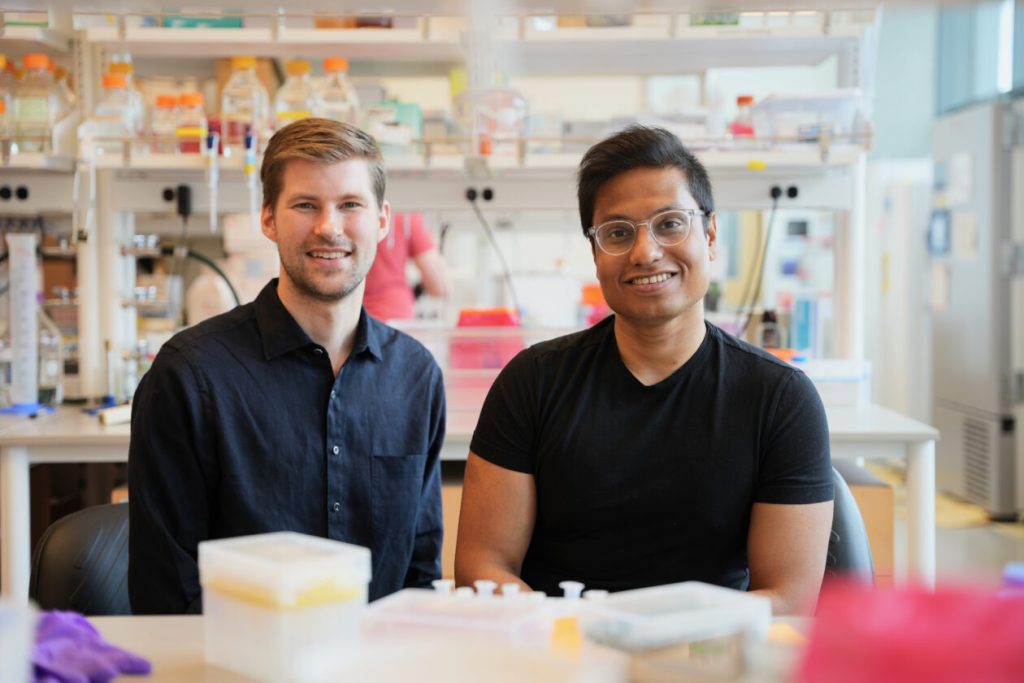Lila Biologics Partners with Eli Lilly to Revolutionize Cancer Treatment Using AI-Designed Proteins
In a significant development for the field of protein-based therapeutics, Seattle-based startup Lila Biologics has announced a promising collaboration with pharmaceutical giant Eli Lilly. The partnership, revealed in early September 2025, aims to develop innovative treatments for solid tumors using Lila’s cutting-edge artificial intelligence platforms. This collaboration represents a major milestone for the young company, which emerged from the prestigious laboratory of 2024 Nobel Laureate in Chemistry, David Baker, at the University of Washington. “We have something unique out there and we’re ready to develop medicines,” declared CEO Jake Kraft, highlighting the significance of this partnership in validating Lila’s technological approach. The startup’s mission extends beyond merely designing proteins—they aspire to create life-saving treatments that can make a meaningful difference for patients battling cancer and other serious conditions.
At the heart of Lila’s innovative approach are two proprietary AI-powered platforms that enable the creation of novel therapeutic proteins with remarkable precision. The first platform specializes in targeted radiotherapy, designing proteins capable of binding specifically to tumors and delivering radioactive isotopes directly to cancerous cells while sparing healthy tissue. This approach promises to overcome some of the limitations of traditional cancer treatments by maximizing therapeutic impact while minimizing side effects. The second platform focuses on developing long-acting injectable medications that can release treatment gradually over extended periods—potentially weeks or months—improving patient compliance and quality of life. Both platforms leverage the revolutionary protein design capabilities pioneered in Baker’s lab, where AI algorithms are increasingly successful at creating functional proteins that perform as intended when tested in laboratory settings.
The collaboration with Eli Lilly specifically focuses on Lila’s targeted radiotherapy technology, with an ambitious timeline that demonstrates the efficiency of their AI-driven approach. The startup aims to deliver a candidate protein to Eli Lilly within just three to six months, enabling the pharmaceutical company to advance the potential treatment through clinical trials. What sets Lila’s work apart is their focus on challenging tumor targets that have traditionally proven difficult for other organizations to address effectively. By tackling these harder-to-hit targets, Lila is potentially opening new frontiers in cancer treatment for patients who currently have limited therapeutic options. This ambitious approach reflects the company’s confidence in their technological capabilities and their commitment to addressing unmet medical needs.
Founded in 2023 by Jake Kraft and Anindya Roy, both former postdoctoral fellows at the University of Washington’s Institute for Protein Design, Lila Biologics represents the commercial application of groundbreaking scientific advances in protein engineering. The company secured $10 million in seed funding that same year from a consortium of investors including WRF Capital, SilverArc Capital Management, and Sahsen Ventures, among others. David Baker, who serves as a co-founder of Lila, has been instrumental in developing the foundational technology that allows researchers to use artificial intelligence and machine learning algorithms to engineer entirely novel proteins designed for specific functions. “With a world-class team and holistic approach to ML-driven protein design in place, Lila Biologics is uniquely suited to advance a new class of tumor-targeted radiotherapies and long-acting injectable medicines toward the clinic,” Baker stated, underscoring the transformative potential of the company’s approach.
The scientific underpinnings of Lila’s technology represent a remarkable convergence of artificial intelligence and protein engineering. In recent months, researchers from the Institute for Protein Design have published multiple papers in leading scientific journals demonstrating the capabilities of their AI tools, including creating proteins that can bind to specific disease markers and capture elusive, shapeshifting molecules. What makes this technology particularly powerful is its ability to design proteins that have never existed in nature but can perform highly specialized functions with exceptional precision. Importantly, the institute has made its foundational AI technology freely available to users worldwide, fostering a collaborative environment that accelerates scientific progress while allowing companies like Lila to build proprietary applications on top of this shared knowledge base.
Beyond their collaboration with Eli Lilly, Lila Biologics is simultaneously developing their own pipeline of therapeutic candidates, including a promising long-acting injectable treatment for pulmonary disease. The company has already advanced several drugs to candidate stage and is preparing for investigational new drug studies—a crucial step toward human clinical trials. With a small but highly specialized team of seven people, Lila exemplifies the lean, focused approach that characterizes many cutting-edge biotechnology startups. Their progress demonstrates how artificial intelligence is fundamentally changing the landscape of drug discovery and development, potentially compressing timelines that traditionally stretched over many years. As Kraft eloquently stated, “We don’t want to just say we’ve designed a protein, but we actually want to be able to say we’ve saved lives.” This patient-centered philosophy drives Lila’s ambitious work at the frontier of protein-based medicine, where artificial intelligence and human ingenuity combine to create entirely new possibilities for treating disease.


